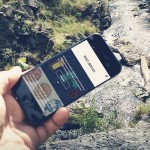 The last few years have seen a huge boom in citizen science, as researchers have managed to design tasks in such a way that interested lay people can contribute small chunks that when added together correspond to something pretty cool.
The last few years have seen a huge boom in citizen science, as researchers have managed to design tasks in such a way that interested lay people can contribute small chunks that when added together correspond to something pretty cool.
The movement has understandably received a lot of praise. A study published late last year, for instance, found that the work of citizen scientists was comparable to that of professional scientists.
A second study then found that citizen science was often invaluable in areas of science that were often neglected by the mainstream science industry.
This has been followed by a couple of papers from the Woodrow Wilson Center that looked at how policy makers should be looking at citizen science, both from the perspective of supporting the movement, but also how citizen science can feed into policy.
A new form of DIY citizen science
Suffice to say, a lot of citizen science projects don’t require a great deal of equipment on behalf of the citizens to participate. They can join in by playing games or logging what they do whilst walking, for instance.
Post/Biotics want to take things up a level. The UK based organization provide users with a small, home laboratory that they can deploy in their gardens to help locate future antibiotics.
The hope is that the labs will encourage a wide range of participants from all age ranges to help find solutions to the growing resistance we have to antibiotics.
Users are provided with a toolkit and a large support network to help them contribute to the development of better antibiotics.
The toolkit allows users to test samples of whatever they happen to find in their garden and surrounding areas, whether that is soil or vegetation.
The lab will identify the presence of antibacterial qualities by changing color, at which point the user can send off their results together with a photo and GPS location to an online database.
Once something of interest is identified, the project talks directly to researchers who can examine any samples that come in. This analysis is then published into an open-source library of potential antimicrobials.
The importance of antibiotic resistance
This is an issue of huge importance, with estimates that antibiotic resistance could lead to up to ten million deaths per year around the world. To put that into perspective, it represents more deaths than from cancer and diabetes put together.
It’s an issue that has attracted significant attention from the global community, with the Longitude Prize offering up a £10 million bounty for anyone capable of providing a solution to the challenge earlier this year.
It was a challenge that Post/Biotics founder Vidhi Mehta wanted to tackle head on. The Imperial College graduate took inspiration from the home remedies often deployed when she was growing up in India, and set out to explore whether similar remedies exist elsewhere in the world.
There are plans afoot for an app to go with the toolkit, and even for a dedicated, open source platform for antibiotic discovery.
“That platform is a vision of open-source drug discovery, and imagines what can happen when its design enables the tools of scientific innovation to reach out to the common people, supporting their learning, and adding to scientific knowledge through the power of the crowd,” Mehta says.
Very clever.